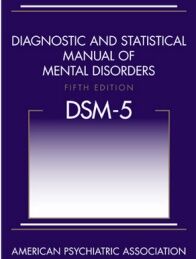Health
Inequality and Mental Health
Mental health problems are far worse in rich nations that are socially unequal.
Posted June 13, 2021 Reviewed by Hara Estroff Marano
Key points
- Mental health problems are widespread and growing in rich countries marked by societal inequality.
- Individual treatments, based on classifications of individual-based symptoms, are not solving the problem.
- Policy changes that tackle growing societal inequality are needed to resolve the growing burden of mental distress.

A recent international report in The Guardian observed that mental health problems are far more common in rich nations that are socially unequal and that individual treatment is not the solution. Although poverty can be a trigger for poor mental health, it is inequality that has the most profound and far-reaching effect on individuals and the wider society.
The report, carried out by WHO, argues that radical and broad policy changes are needed to directly counter growing inequality. It goes so far to say that the social and economic prosperity of the U.K. and Europe will depend upon improving mental health and well-being.
“The adverse impact of stress is greater in societies where greater inequality exists and where some people feel worse off than others. We will have to face up to the fact that individual and collective mental health and well-being will depend on reducing the gap between rich and poor.”
Although physical health outcomes point to a positive impact on mortality rates as nations become richer, the opposite seems to be true of mental health, where the level of mental distress among communities “needs to be understood less in terms of individual pathology and more a response to inequalities involving relative deprivation across society.”
The report’s author, Lynne Friedli, contends that, to date, there has been an “undue focus on individual solutions” to mental health issues like depression, when what is called for is a social solution. She points to cognitive behavior therapy (CBT) as being the therapy that may work for many individuals, but no amount of CBT can address society as a whole, where huge inequalities reflect the kind of society we live in.
Beyond CBT, all the so-called evidence-based individual therapies depend upon the Diagnostic Statistical Manual (DSM) and its WHO counterpart, The ICD Classification of Mental and Behavioral Disorders. Both focus on classifying individual symptoms of mental illness, and the classifications are institutionalized by insurance carriers, colleges, and government research centers.
Beyond an individual’s mental diagnosis, the pandemic has revealed that the family and community an individual resides in also play a role in mental disorders. Enlisting sociologists, social anthropologists, political scientists, and economists can help diagnose and prescribe meaningful strategies to further explain the causes and recommend solutions.
But the core issue remains an antiquated, ineffective, and inflexible therapeutic milieu serving the mental health industry at the expense of practitioners and the public. Without major policy changes that include the social, cultural, and economic conditions that support family life, the inequalities will become greater and further undermine mental health.
Rather than stigmatizing and blaming people living in poverty, particularly those displaying mental issues, Friedli thinks we need a “radical rethink” about the kind of society we wish to live in.
What do you think?
*
This blog post was co-published with PsychResilence.com


